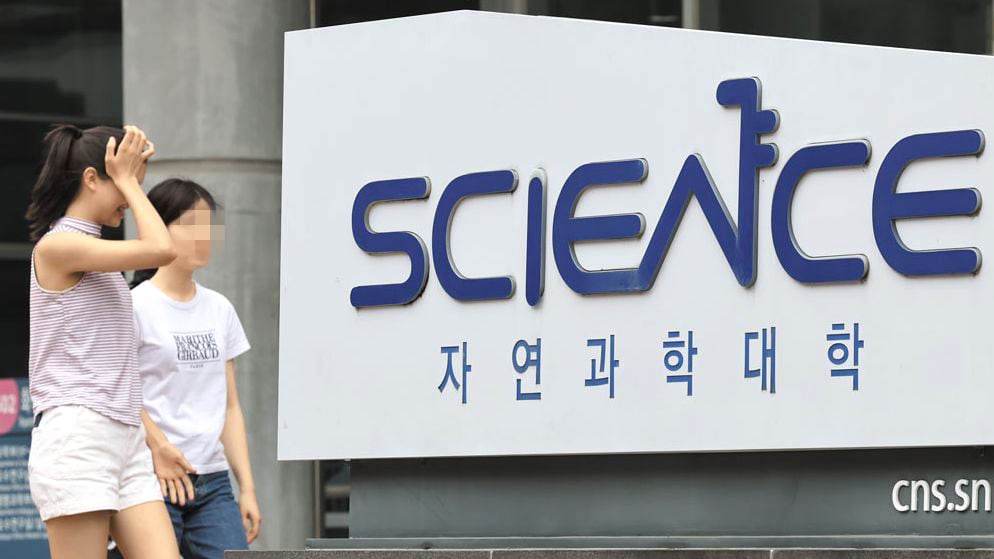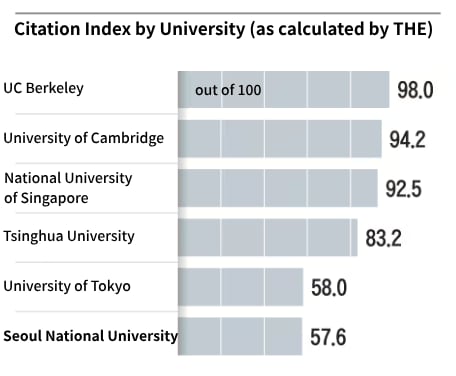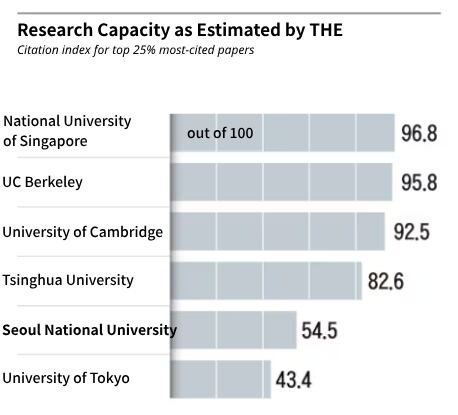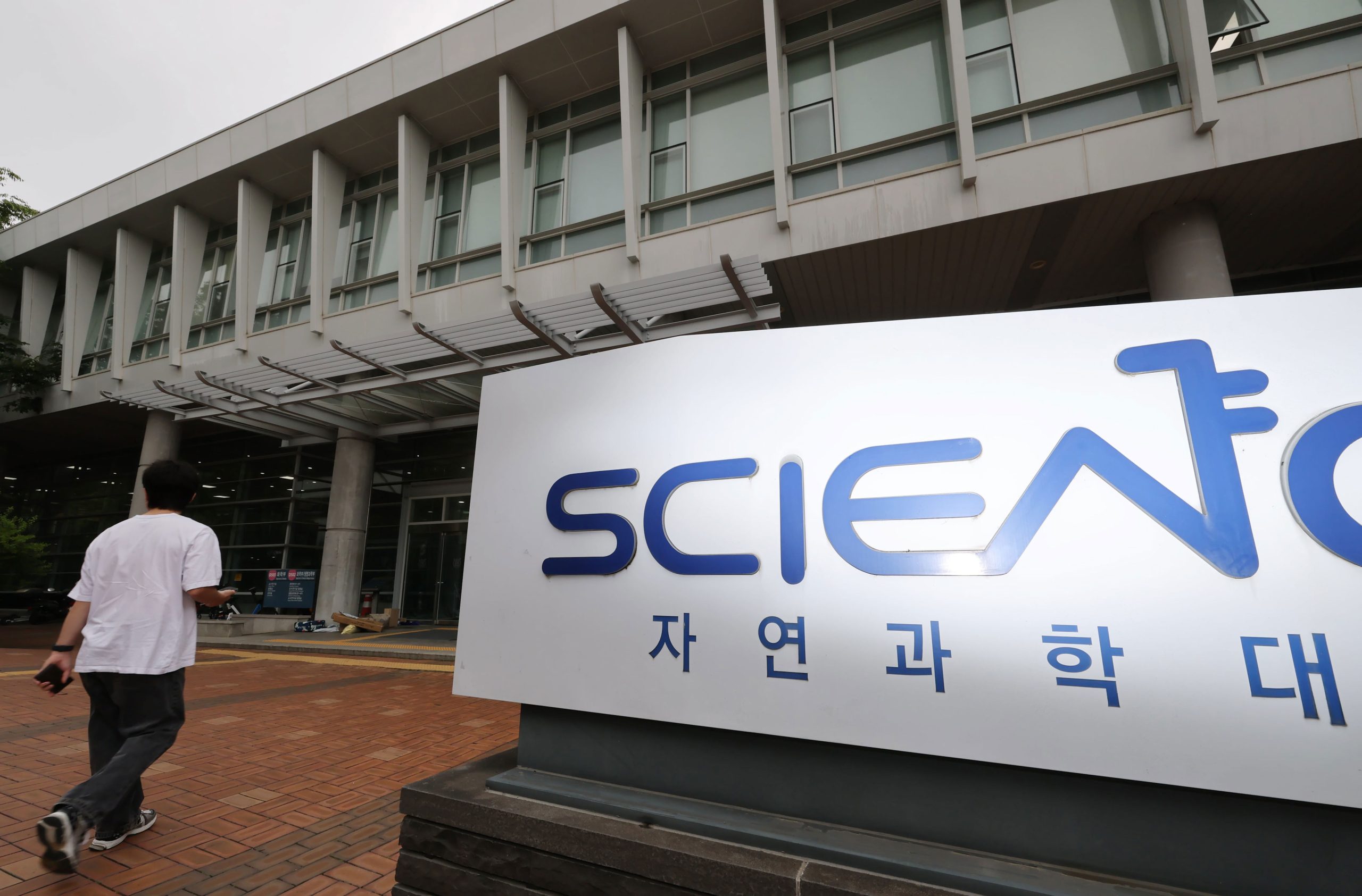
While top universities worldwide are advancing across nearly all academic disciplines, Seoul National University (SNU)’s College of Natural Sciences is falling behind in most areas, a prominent British evaluator has warned.
“SNU enjoys strong domestic prestige, but this heavy reliance on reputation could ultimately undermine its global standing,” the Times Higher Education (THE) stated in its latest report.
The warning comes from a joint assessment conducted by THE and leading academic publisher Elsevier, which carried out a three-month evaluation of the college’s research competitiveness at the university’s request to mark its 50th anniversary. The final report, submitted in June, benchmarked SNU’s performance in the basic sciences against leading institutions such as the University of California, Berkeley; University of Cambridge; National University of Singapore (NUS); Tsinghua University; and the University of Tokyo.
The analysis found that although SNU’s College of Natural Sciences holds the top position domestically, it significantly lags behind its international counterparts in both global recognition and academic performance. THE measured citation impact across disciplines on a standardized 100-point scale, with UC Berkeley scoring 98, Cambridge 94.2, NUS 92.5, Tsinghua 83.2, and the University of Tokyo 58. SNU received the lowest score at 57.6. In citation index rankings for top-quartile publications in the basic sciences, SNU also fell below the global median. The college is expected to announce new measures to improve research competitiveness in October.

The evaluation was commissioned to provide an objective measure of the college’s progress in fundamental sciences—areas critical to technologies such as artificial intelligence, biotechnology, and semiconductors—as it marks its 50-year milestone. At a forum last month attended by SNU faculty and alumni, including Harvard chemistry professor Park Hong-kun, SNU distinguished life sciences professor Kim Vic-narry, and physics and astronomy professor Jeong Hyun-seok, participants stressed that while the college has led South Korea’s basic science efforts for the past five decades, sweeping reforms are needed for it to compete with institutions like MIT, Harvard, and Oxford.
THE and Elsevier’s joint analysis examined the college’s academic output over the past decade, including publication and citation counts, as well as international collaboration metrics such as co-authorship and academic exchange. SNU ranked 63rd globally in life sciences and 70th in natural sciences overall.
Still, THE concluded that SNU continues to struggle with global competitiveness. “Leading institutions such as the National University of Singapore, University of Cambridge, and UC Berkeley are making significant progress across all disciplines, while SNU and the University of Tokyo are falling behind and struggling to maintain their international competitiveness,” the report said.

One of the report’s key findings was the significant disparity in research performance among faculty. In terms of “research excellence”—a metric that compares the number of top 10% cited papers to total publications—SNU earned a score of 92.3 out of 100, on par with Tsinghua (100), Cambridge (99.8), and NUS (99.7). However, for “research capacity,” which gauges the proportion of a university’s output that ranks in the global top 25% most-cited papers, SNU scored just 54.5—roughly half that of NUS (96.8), UC Berkeley (95.8), and Cambridge (92.5).
“The top researchers at SNU are highly competitive by global standards, but many others fall short,” said an academic familiar with the findings.
The report also identified low levels of international collaboration as a major factor limiting SNU’s global visibility. Only 15.4% of its life sciences publications and 29.8% of its natural sciences papers involved international co-authors—far below the 70% to 90% collaboration rates reported by top global institutions.







